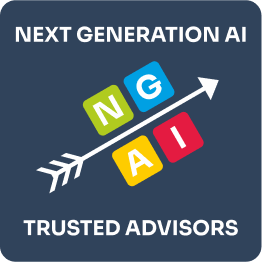In today's complex business landscape, the importance of GRC (Governance, Risk, and Compliance) cannot be overstated. This comprehensive framework integrates governance, risk management, and compliance to help organizations not only achieve their objectives but also navigate the myriad risks they face while ensuring adherence to ever-evolving regulations.
Conducting a GRC Assessment is crucial for any organization looking to evaluate its capabilities in this area. By assessing your GRC framework, you can ensure that your practices align with industry standards and regulatory requirements, thus safeguarding your organization against potential pitfalls.
But the question remains: Are you GRC compliant? Achieving GRC compliance means more than just ticking boxes; it involves embedding governance policies into your organizational culture, managing risks proactively rather than reactively, and consistently meeting regulatory standards. Embracing a robust GRC strategy ensures that your organization operates efficiently while minimizing risks—ultimately leading to sustainable success in an increasingly regulated environment. Don't leave compliance to chance; prioritize GRC today for a secure tomorrow.
Risk Management
Governance, Risk, and Compliance (GRC) is not just a buzzword; it is an essential framework for organizations aiming to navigate the complexities of today’s business environment. At the heart of GRC lies risk management, which involves identifying, assessing, and mitigating risks that could significantly impact an organization's objectives.
Effective risk management is crucial because it allows organizations to proactively address potential threats before they escalate into larger issues. By integrating risk management into their governance and compliance strategies, businesses can ensure that they are not only meeting regulatory requirements but also safeguarding their assets and reputation.
Incorporating a robust GRC framework empowers organizations to make informed decisions based on a comprehensive understanding of their risk landscape. This proactive approach not only enhances operational efficiency but also fosters a culture of accountability and transparency within the organization. As we move forward in an increasingly complex regulatory environment, prioritizing GRC will be vital for any organization looking to thrive in the face of uncertainty.
45 Billion Cap 2025
Governance, Risk, and Compliance (GRC); represents a projected market cap for GRC solutions is set to soar as industries recognize the necessity of robust governance structures and risk management strategies. For instance, consider the staggering $45 billion development pipeline for data centers and digital infrastructure. This investment highlights a growing recognition of the need for stringent compliance measures in an era where data security and regulatory adherence are paramount.
As businesses expand their operations into new territories and technologies, the importance of GRC cannot be overstated. Organizations that prioritize governance frameworks will not only safeguard their assets but also enhance their reputation among stakeholders. By investing in comprehensive GRC strategies now, businesses position themselves to capitalize on future opportunities while mitigating potential risks associated with non-compliance or mismanagement. Embracing GRC is not merely an option; it’s a strategic imperative that can lead to sustainable growth and long-term success.
4% in Compliance in 2024
In today's complex business landscape, Governance, Risk, and Compliance (GRC) have become critical pillars for organizations striving to maintain integrity and accountability. A staggering statistic reveals that only 4% of organizations are currently meeting compliance standards in areas such as data protection and financial reporting. This alarming figure underscores the urgent need for robust GRC frameworks.
The implications of failing to adhere to compliance standards can be severe, ranging from hefty fines to reputational damage. As regulatory environments continue to evolve, businesses must prioritize their GRC strategies not just as a checkbox exercise but as a fundamental aspect of their operations. Embracing a proactive approach to GRC can help organizations mitigate risks effectively while fostering trust with stakeholders. By investing in comprehensive governance frameworks and risk management practices, companies can position themselves ahead of the curve and ensure long-term sustainability in an increasingly regulated world.
AI and Cloud Compliance
In today’s rapidly evolving digital landscape, the importance of Governance, Risk, and Compliance (GRC) cannot be overstated. Organizations must navigate a complex web of regulations and standards to ensure they operate within legal boundaries while also maintaining ethical practices. This is where AI Compliance comes into play. By leveraging advanced algorithms and machine learning techniques, AI Compliance solutions ensure that AI systems adhere to ethical, legal, and operational standards. This not only mitigates risks associated with non-compliance but also enhances the integrity of your operations.
Moreover, as businesses increasingly migrate their operations to cloud environments, Cloud Compliance has become a critical component of GRC strategies. It focuses on meeting regulatory requirements for data stored and processed in the cloud, ensuring that sensitive information remains protected against breaches and unauthorized access. By prioritizing both AI Compliance and Cloud Compliance within your GRC framework, you can safeguard your organization’s reputation while fostering trust among stakeholders. Embracing these compliance measures is not just a regulatory obligation; it’s a strategic advantage that positions your organization for sustainable success in an interconnected world.
Government Mandate for GRC Compliance
In today's competitive landscape, Governance-Risk-Compliance (GRC) has become an essential framework for organizations seeking to thrive while adhering to regulatory standards. Many governments mandate GRC compliance for organizations bidding on contracts, particularly in high-stakes sectors like defense. This requirement is not just a bureaucratic hurdle; it serves as a critical safeguard ensuring that companies operate within legal boundaries and maintain ethical standards.
Organizations that prioritize GRC compliance position themselves as trustworthy partners, enhancing their credibility and increasing their chances of securing lucrative contracts. By implementing robust GRC practices, businesses can effectively manage risks, streamline governance processes, and ensure adherence to regulations. This proactive approach not only mitigates potential legal repercussions but also fosters a culture of accountability and transparency.
In an era where governmental scrutiny is intensifying, failing to comply with GRC requirements can result in disqualification from bidding processes and significant reputational damage. Therefore, investing in comprehensive GRC strategies is not merely advantageous; it is essential for any organization aiming to succeed in today’s regulated environment. Embracing GRC compliance equips businesses with the tools they need to navigate complexities confidently and emerge as leaders in their respective fields.
CMMC (Cybersecurity Maturity Model Certification)
Governance, Risk, and Compliance (GRC) is a critical framework for organizations aiming to navigate the complex landscape of regulations and cybersecurity requirements. One of the pivotal components in this realm is the Cybersecurity Maturity Model Certification (CMMC), established by the Department of Defense (DoD). The CMMC framework is designed to enhance cybersecurity across the defense industrial base, ensuring that contractors meet stringent security measures to protect sensitive information.
What sets CMMC apart is its tiered certification process, which includes multiple levels based on the sensitivity of information handled. This structured approach allows organizations to assess their current cybersecurity posture and implement necessary improvements tailored to their specific operational needs. By achieving CMMC certification, organizations not only demonstrate their commitment to safeguarding sensitive data but also gain a competitive edge in securing government contracts. In today's digital landscape, where cyber threats are increasingly sophisticated, embracing GRC principles through frameworks like CMMC is not just an option—it’s an imperative for sustainable success.
C3PAO
Organizations must navigate a myriad of regulations and standards to ensure they operate within legal boundaries while managing risks effectively. One critical component in this journey toward compliance is the role of a C3PAO (CMMC Third-Party Assessor Organization).
A C3PAO is authorized to conduct CMMC assessments for organizations seeking compliance with the Cybersecurity Maturity Model Certification (CMMC). This certification is essential for businesses looking to work with the Department of Defense and other government entities. By engaging a certified C3PAO, organizations can gain invaluable insights into their current security posture and identify gaps that need addressing.
The expertise provided by these assessors not only helps ensure compliance but also strengthens an organization's overall risk management strategy. In an era where cyber threats are ever-evolving, partnering with a reputable C3PAO is not just advisable; it’s imperative for any organization serious about safeguarding its assets and maintaining trust in its operations. Embracing GRC principles through proper assessment can lead to enhanced operational efficiency and resilience against potential risks.
Security Compliance
Security compliance is at the heart of GRC, ensuring that organizations adhere to essential cybersecurity standards and regulations designed to protect sensitive data and systems. By implementing robust security compliance measures, businesses not only safeguard their assets but also build trust with customers and stakeholders.
The reality is that non-compliance can lead to severe repercussions, including financial penalties, reputational damage, and even legal ramifications. Therefore, prioritizing security compliance is not just a regulatory checkbox; it’s a strategic imperative. Organizations that invest in comprehensive GRC frameworks are better positioned to navigate risks effectively while maintaining operational integrity.
Moreover, as cyber threats evolve, so too must our approach to governance and risk management. Embracing a proactive stance on security compliance enables organizations to adapt swiftly to new challenges while ensuring they remain aligned with industry standards. In essence, effective GRC practices empower businesses to thrive in an increasingly complex regulatory environment while protecting their most valuable asset: their data.
AI Governance & Compliance
Governance-Risk-Compliance (GRC) cannot be overstated, especially when it comes to artificial intelligence (AI). As organizations increasingly integrate AI into their operations, establishing robust AI governance becomes paramount. This involves creating comprehensive policies and frameworks that ensure ethical and transparent AI deployment. By prioritizing AI governance, companies can mitigate risks associated with bias, privacy violations, and unintended consequences of automated decision-making.
Moreover, AI compliance is critical in navigating the complex web of laws and regulations that govern AI systems. Organizations must stay abreast of legal requirements related to data protection, algorithmic accountability, and consumer rights. Failing to adhere to these regulations not only exposes businesses to significant legal liabilities but also jeopardizes their reputation in the eyes of consumers who are becoming more aware of their rights regarding technology.
By investing in GRC strategies tailored for AI initiatives, organizations can foster trust among stakeholders while ensuring that they harness the full potential of this transformative technology responsibly. It's not just about compliance; it's about building a sustainable future where innovation aligns with ethical standards and societal expectations.
AI Governance & Implementation
As artificial intelligence continues to evolve, the need for robust governance frameworks becomes increasingly critical. This involves applying structured governance frameworks to ensure responsible AI development and use, addressing risks such as bias and privacy that can undermine trust and integrity.
By implementing GRC principles, organizations can proactively identify potential risks associated with AI systems—such as algorithmic bias that may lead to unfair outcomes or privacy concerns regarding data handling. A solid GRC strategy ensures that companies are not only compliant with regulations but also committed to ethical practices in their AI initiatives. This approach fosters transparency, accountability, and public trust in AI technologies.
In a world where consumers are becoming more aware of their rights and the implications of technology on society, adopting a comprehensive GRC strategy is no longer optional; it’s imperative. Embracing GRC means positioning your organization as a leader in responsible innovation while safeguarding against potential pitfalls.
Get your Free GRC Assessment Assessments - Next Generation AI Trusted Advisors


